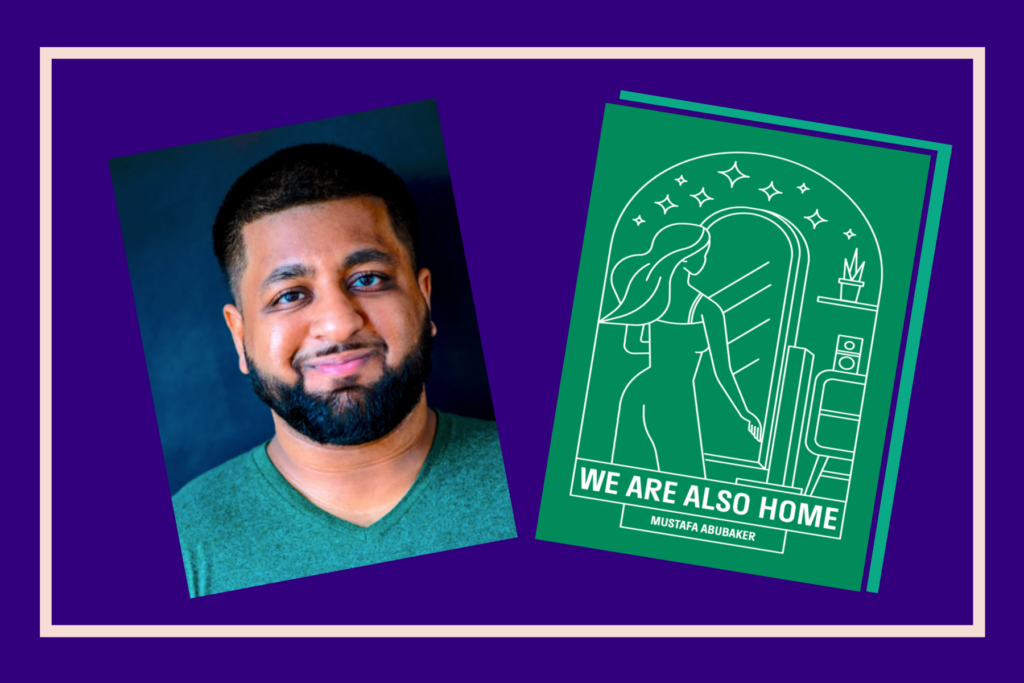
Photos courtesy of Mustafa Abubaker
“We are Also Home” by Mustafa Abubaker is a suspenseful and provocative story about Taimur Mahdi, a poor boy, and Yara Janmohamed, a rich girl, who leave Karachi for Atlanta to chase Yara’s dream of becoming a successful music artist. Entangled by their parents’ love affair, Taimur and Yara’s story is an absolute page-turner filled with mystery, magical realism, Pakistani family drama and creative commentary about the (in)visibility of South Asian women in everyday life.
The first three-quarters of the book is magnificent. Abubaker’s resourceful prose and excellent pacing breathe life into the ordinary aspects of street life in Karachi. He’s almost scientific in his word selection, knowing exactly how to translate seemingly amorphous emotion swimming in each character’s thoughts.
[Read Related: Book Review: ‘Tears in the Flag’ by Siddharth Bindra]
Our Brown Girl readers will love diving into the nebula of a brown boy’s romantic thoughts, observing how Taimur muses about Yara and catches fleeting moments of her beauty in between smoke breaks, hitmen missions and general stresses of life. I enjoyed watching the journey of two people free-falling into love, of existing in this freefall and ultimately of learning what it takes to get back on the ground. What will also keep you reading this book until 2 a.m. is following a man who was born into circumstances where exposing his heart is not safe. The end of every chapter will have you wondering: will Taimur be able to get out of this?
Taimur and Yara’s parents are part of what I call the Kabhi Kabhi Meri Dil Mein generation. Forced to sign up for a life of unrequited love, they’ve resigned to the fact that their hearts will burn forever. Life is a constant state of repressed poetry and acid reflux, and they will die, dragging everyone else along for the ride.
[Read Related: Book Review: Zarrar Said’s ‘Pureland’ is a Love Story for us All]
What I like about Taimur is that he embodies the sentiments of the subsequent generation: Why not be fearless? Let’s chase what we want because we know it won’t fall on our lap. Taimur is a chaser, and this story is about the chase — the chase for love and for finding himself. Who is he, actually? Abubaker plants mysterious pit stops that hold the answers to those secrets.
My only wish was that Abubaker sustained the novel’s masterful suspense and soul-stirring depth throughout the last quarter of the book. The job was ambitious, no doubt, and there were many components to resolve, but by that point, Abubaker had already convinced me of his talent. He is too much of an observer of the human condition for it not to happen. However, it was completely forgivable because that’s how good the rest of the book is.
I would still re-read it to relive the intimate moments of their intricate, complicated lives and to feel like I was walking through Karachi’s dusty streets myself. It’s totally worth buying, and I would definitely recommend this book for folks who want exciting and quality fiction.




